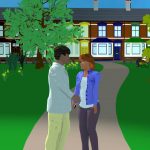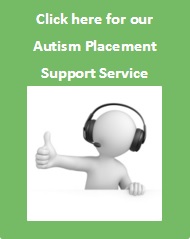Autism – Relationship and Sex Education
This article on Autism – Relationship and Sex Education is offered by Wilf Parsons of Life Support Productions
Relationship and Sex Education legislation
As of September this year, 2020, Relationship and Sex Education (RSE) became mandatory in primary, secondary and special schools – RSE (England) Regulations 2019. The new legislation also details the rights of all children, including those with special educational needs, to appropriate and accessible information and resources.
Children and young people are growing up in an increasingly sexualised World and are being confronted with questions about their own opinions, values and identity at a younger age than previous generations. Now more than ever it is important that they have the educational support and resources to help prepare them for adult life.
Autistic children and those with additional needs
 Children and young people with additional educational needs including autism have sometimes been overlooked in parts of the educational curriculum.
Children and young people with additional educational needs including autism have sometimes been overlooked in parts of the educational curriculum.
For them accessible information across a range of topics needs to be presented clearly and sensitively. Key issues, such as consent, may need repetition, not only for comprehension and understanding, but also to illustrate a variety of circumstances. With consent this should include both saying and understanding ‘yes’ and ‘no’.
It is also important to equip children and young people with the essential information about their own bodies and feelings including changes as they grow and enter adolescence.
Parents and carers may also feel some anxiety about relationship and sex education and feel concerned that appropriate, accessible resources are available. To help, privacy and other practical everyday topics need to be clearly explained.
Resources
Personal self-care and health awareness are other important skills that comprehensive RSE resources should help to develop. Other key subjects include sexual orientation and understanding different types of relationship. These should be presented in a positive way.
Other types of relationship issues, including the danger of ‘fake mates’ and other exploitative situations, should be explained clearly so as to help more vulnerable children and young people stay safe.
Ideal resources should explore and explain each topic individually so that teachers can plan each lesson appropriate to each classes’ age and needs. They also need to be up-to-date and cover important issues in young people’s lives today including social media and online safety.
Life Support Productions have a range of RSE resources, for primary, secondary and for children and young people with autism and learning disabilities. Each of our resources is made up of a series of video sequences, each illustrating a different subject.
In 2019 we released a comprehensive new resource – ‘Your Body, Growing Up Relationships and Sex’. In an easy to use format, this new resource covers an extensive range of up to date topics and is a completely new replacement for our older SEND resources.
Accessible and supported by lesson plans, our resources are available both online and as DVDs.
For more information please visit www.lifesupportproductions.co.uk. If you would like to have a free look at our online resources please email me wilf@lifesupportproductions.co.uk and mention Living Autism.





